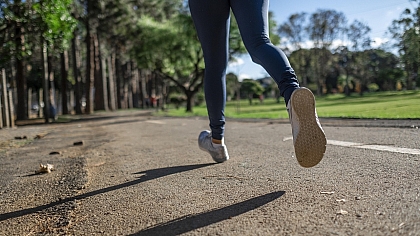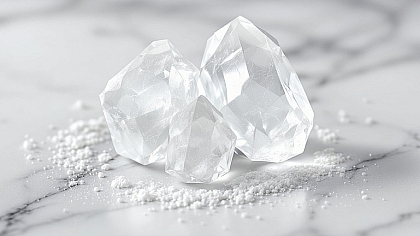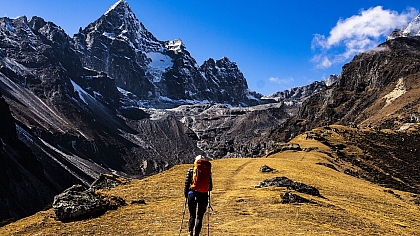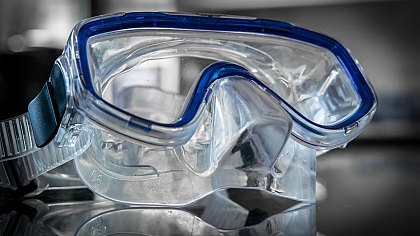
Sleep & Fitness: How Rest Powers Your Performance
You can train hard and eat clean, but your results will suffer without quality sleep. Sleep is when your body repairs muscles, regulates hormones, and refuels energy, making it just as important as your workout.
Here’s exactly how sleep impacts fitness, plus science-backed tips to optimise both.
How Poor Sleep Sabotages Your Gains
1. Slower Muscle Recovery
During deep sleep, your body releases growth hormone, which repairs muscle tissue damaged during workouts. Less sleep = slower recovery = weaker next session.
2. Lower Strength and Endurance
Studies show athletes who sleep 5-6 hours (vs. 7-9) have:
- 10-15% lower max lifts
- 20% slower sprint times
- Poorer coordination (increasing injury risk)
3. Increased Cravings
Sleep deprivation spikes ghrelin (hunger hormone) and drops leptin (fullness hormone), leading to:
✔ More sugar cravings
✔ Poorer food choices
✔ Harder fat loss
Sleep Strategies for Better Fitness
1. Time Your Sleep Around Workouts
- After lifting: Aim for 7-9 hours to maximise muscle repair.
- Before cardio: Prioritise sleep—even one bad night hurts endurance.
2. Optimise Your Sleep Environment
- Temperature: 65-68°F (18-20°C) is ideal for muscle recovery.
- Darkness: Use blackout curtains—light disrupts deep sleep.
- Noise: White noise or earplugs block disruptions.
3. Pre-Bed Rituals for Athletes
- Magnesium glycinate (200-400mg) relaxes muscles.
- Tart cherry juice boosts melatonin naturally.
- 10 minutes of mobility work reduces next-day soreness.
The Workout-Sleep Cycle
| Sleep Factor | How It Helps Fitness | Fix If Struggling |
|---|---|---|
| Deep Sleep | Muscle repair & growth | Reduce caffeine after 2 PM |
| REM Sleep | Brain recovery for coordination | Limit alcohol (kills REM) |
| Total Hours | Energy for the next workout | Gradually add 15 min/night |
Signs You’re Not Sleeping Enough for Your Training
- Waking up sore (not just tired) after normal workouts
- Plateauing despite good nutrition/training
- Needing caffeine to get through workouts
- Frequent injuries or illnesses

FAQs
Q: Can napping help recovery?
A: Yes! 20-30 min naps boost alertness (but don’t replace night sleep).
Q: Does sleep affect weight loss?
A: Absolutely. Poor sleep can halve fat loss even on the same diet.
Q: How do you sleep better after evening workouts?
A: Cool down properly, hydrate, and avoid screens 30 minutes pre-bed.
Q: Do sleep trackers help?
A: Basic ones (like Whoop or Oura) can reveal sleep patterns to improve.
Prioritise Sleep Like You Do Training
Think of sleep as your secret workout partner—silently helping you lift heavier, run faster, and recover smarter.
The Circadian Rhythm Workout Advantage
Your body's internal clock significantly impacts workout effectiveness. Research shows:
- Strength peaks between 2-6 PM when core temperature is highest
- Endurance capacity improves by 4-7% in late afternoon
- Flexibility is greatest in evening sessions
Adjust training based on your chronotype:
- Early birds excel at morning pilates or technique work
- Night owls should schedule heavy lifts in late afternoon
- Shift workers benefit from consistent pre-work naps
A 2024 Sports Medicine study found that athletes who aligned workouts with circadian rhythms saw 18% better performance gains.
Sleep's Hidden Role in Injury Prevention
Lack of sleep dramatically increases injury risk through:
- Slower reaction times (equivalent to 0.08% blood alcohol content)
- Reduced proprioception (body awareness during movement)
- Impaired decision-making in technical sports
For every hour under 7 sleep hours, injury risk rises 12% in athletes (per JAMA study). The safest athletes aren't just well-trained—they're well-rested.
Nutrition Tweaks for Better Recovery Sleep
Strategic eating enhances sleep quality for athletes:
3-4 Hours Before Bed:
✓ Slow-digesting protein (cottage cheese, casein)
✓ Magnesium-rich foods (pumpkin seeds, spinach)
✓ Tart cherry juice (natural melatonin source)
Avoid Within 2 Hours of Bed:
✗ High-glycemic carbs (spike insulin)
✗ Excessive fluids (disrupts sleep with bathroom trips)
✗ Spicy foods (raise core temperature)
The Sleep-Stress Performance Triangle
Intense training creates a delicate balance:

Break the cycle with:
- Post-workout breathing exercises (4-7-8 method)
- Electrolyte replenishment (prevents stress hormone spikes)
- Non-sleep deep rest (NSDR) protocols like yoga nidra
Gadgets That Improve Sleep Quality
Beyond basic trackers, these tools help athletes:
Temperature Regulation:
- ChiliPad sleep system (cooling mattress pad)
- BedJet climate control
Recovery Optimisation:
- Apollo Neuro (vibration therapy for relaxation)
- Dreem 3 headband (real-time sleep coaching)
Low-Tech Solutions:
- Blue light blocking glasses (for evening screen use)
- Gravity weighted blankets (for deeper sleep)
When to Reschedule vs. Push Through
Sleep-deprived athletes should modify their training:
Reschedule If:
- Under 5 hours of sleep
- Experiencing microsleeps (nodding off)
- Resting heart rate 10 %+ above normal
Modified Session If:
- 5-6 hours sleep: Reduce volume by 30%
- Poor quality sleep: Focus on technique vs. PRs
Your Personal Sleep Audit
Track these metrics for 3 nights:
- Time lights out → time fell asleep
- Number of awakenings
- Morning resting heart rate
- Workout performance ratings
Spot patterns like:
- Late caffeine = trouble falling asleep
- Alcohol = frequent wake-ups
- Poor pre-bed routine = morning fatigue
Action Step Tonight
Pick one sleep upgrade:
- Set a consistent bedtime within 30 30-minute window
- Install F.lux on devices for automatic blue light reduction
- Try "legs up the wall" pose pre-bed for recovery
Tonight’s Goal: Get to bed 30 minutes earlier than usual. Your next PR depends on it.









